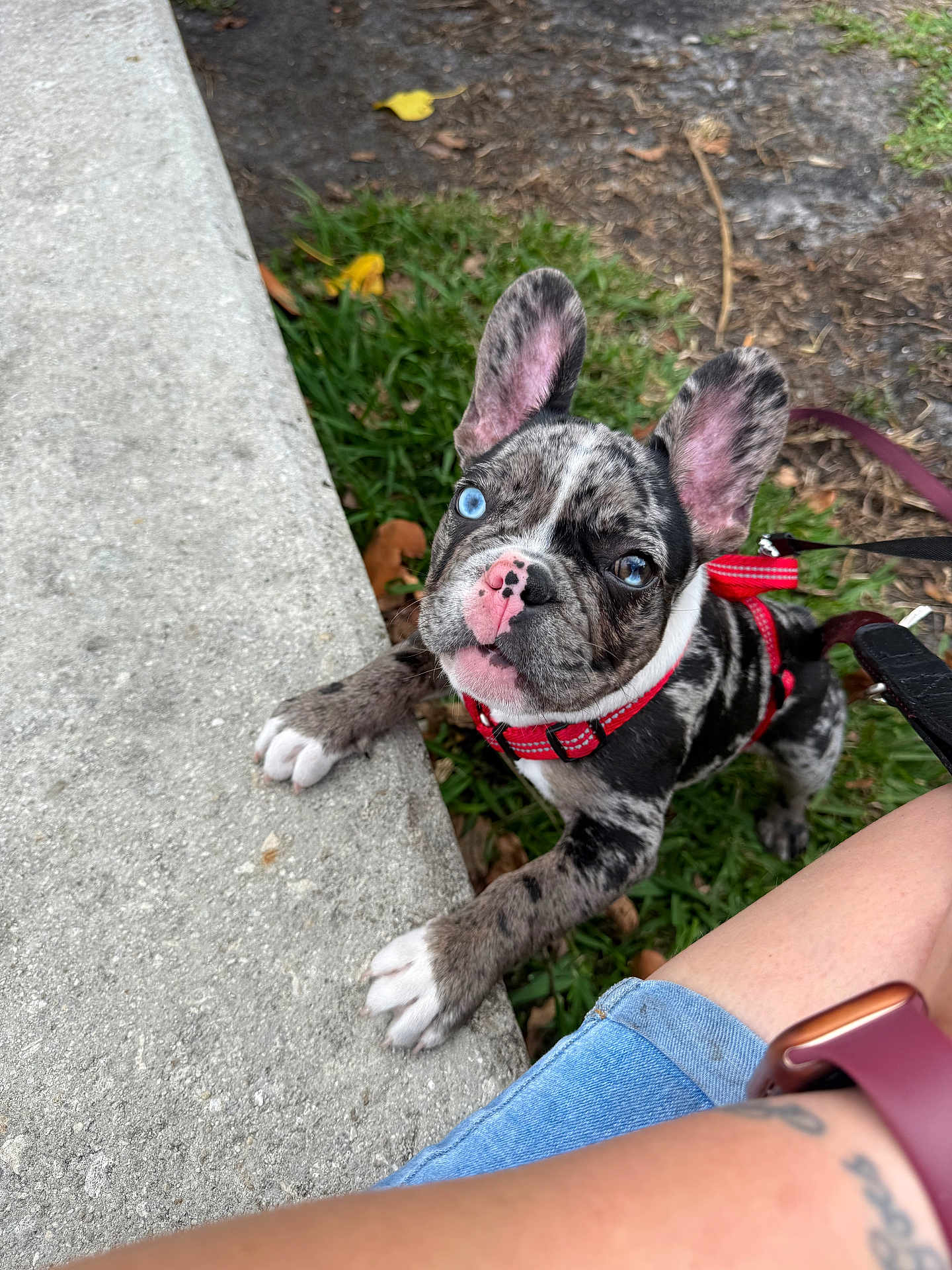
"A dog is the only thing on earth that loves you more than he loves himself." — Josh Billings
The French Bulldog, affectionately known as the "Frenchie," has surged in popularity over the past decade, captivating dog lovers with its endearing appearance and charming demeanor. As we dive into the world of this distinguished breed, you'll discover the French Bulldog’s unique characteristics, rich history, and the special care it requires. If you're contemplating adding a French Bulldog to your family, this comprehensive guide will provide the insights you need to make an informed decision.
Personality and Behavior of the French Bulldog
French Bulldogs are renowned for their affectionate and playful nature. Known for being sociable and loving, Frenchies are excellent companions, often forming strong bonds with their families. They are particularly well-suited for apartment living due to their compact size and generally low activity level.
One of the defining traits of the French Bulldog is its penchant for entertaining antics. Whether it's a goofy facial expression or a playful romp, these dogs bring joy and laughter to households. These behaviors make them excellent pets for individuals and families alike.
French Bulldogs are also noted for their resilience and adaptability. They can adjust to various living environments, making them ideal for both urban and suburban settings. This flexibility, paired with their relatively low exercise needs, makes the French Bulldog a versatile pet for many lifestyles.
Additionally, Frenchies are known for their loyalty and protectiveness. While they might not be the most formidable guard dogs, they provide a sense of security through their alertness and devotion to their human companions. Their watchful nature means they will often bark to alert their owners of any unusual activity, albeit not excessively.
"One of the most endearing qualities of the French Bulldog is its ability to communicate with expressive facial expressions that are often described as almost human-like."
Meanings, History and Origins of the name French Bulldog
The French Bulldog’s name, as one might initially deduce, has origins tied to both England and France. Originally descended from the English Bulldog, French Bulldogs were bred in Nottingham’s lace industry as smaller, more manageable companions. During the Industrial Revolution, many lace workers migrated to France, bringing these small bulldogs with them. Over time, these dogs were crossbred with local French breeds, resulting in the playful and charming French Bulldog we know today.
In France, the breed initially garnered popularity among working-class citizens, including butchers and café owners. As their popularity grew, they caught the eye of Parisian "bohemian" society, earning a reputation as a fashionable companion. This blend of industrious roots and high-society appeal adds to the rich tapestry of the French Bulldog’s history.
The breed’s name embodies this unique cultural blend. The “Bulldog” aspect pays homage to its English roots, relating to the breed's origin as smaller bulldogs used for bull-baiting—a practice that was fortunately banned. The “French” part of the name reflects the breed's substantial development and popularity in France.
Popularity of the French Bulldog
The French Bulldog's charm has led to a skyrocketing rise in popularity globally. According to the American Kennel Club (AKC), the breed consistently ranks among the top five most popular dog breeds in the United States. This popularity can be attributed to the Frenchie’s suitability for both city and suburban living, combined with its endearing personality.
In English-speaking countries like the UK, Canada, and Australia, the Frenchie has found a firm place in many hearts and homes. Their compact size and relatively low maintenance needs make them particularly appealing in urban settings where space and time can be limited.
Globally, the French Bulldog has also seen increased popularity. In countries across Europe and Asia, the breed is becoming a fashionable pet choice. This widespread appeal is amplified by social media, where the breed's photogenic nature and charming antics have made it a favorite among influencers and celebrities.
Health and Care of the French Bulldog
Caring for a French Bulldog requires understanding its specific health needs. Frenchies are prone to certain health issues, primarily due to their brachycephalic (short-nosed) structure. This anatomical feature makes them vulnerable to respiratory problems, especially in hot or humid weather. Ensuring that your French Bulldog remains in a cool, comfortable environment is essential.
Moreover, French Bulldogs can suffer from hip dysplasia and spinal disorders. Regular vet check-ups and maintaining a healthy weight can help mitigate these risks. It's crucial to be vigilant about their diet; French Bulldogs can be prone to obesity, which exacerbates other health issues.
Dietary needs for a French Bulldog should include high-quality dog food tailored to their size and activity level. Consulting with a veterinarian to create a balanced diet plan is recommended. Hydration is equally important, as their short snouts can make them more susceptible to overheating.
Regular grooming is also part of French Bulldog care. Their short coat requires minimal upkeep, but routine brushing can help reduce shedding and maintain healthy skin and coat. Additionally, Frenchies are known for their folds of skin, particularly on their faces. These folds can trap moisture and debris, so regular cleaning is essential to prevent infections.
Training and Education of the French Bulldog
Training a French Bulldog can be both a rewarding and challenging endeavor. Frenchies are intelligent and eager to please but can also exhibit stubbornness. Patience and consistency are key components of effective training.
Positive reinforcement techniques, such as treats and praise, work well with this breed. Training sessions should be kept short and engaging to hold the French Bulldog's attention. Socialization from a young age is crucial too, helping them become well-rounded adults who are comfortable in various environments and situations.
Housebreaking a French Bulldog may take some time due to their sometimes stubborn nature. Consistency is crucial, and crate training can be an effective method. Creating a routine and rewarding success will encourage positive behaviors.
Professional obedience classes can be a great resource, offering structured training environments that foster discipline and socialization. These classes also provide support for owners, helping them understand the best ways to communicate with their dogs.
Choosing the right dog for your household involves considering various factors such as the dog's temperament, size, exercise needs, and compatibility with your lifestyle. French Bulldogs, with their affectionate and adaptable nature, can be a delightful addition to families, singles, and seniors alike.
Conclusion
The French Bulldog is a testament to the enduring charm and versatility of dog breeds. Their rich history, delightful personality, and manageable care requirements make them a popular choice for many dog lovers. At KingPet, we see numerous French Bulldogs participating in our contests, each showcasing the unique and lovable traits that make this breed so special. When choosing a French Bulldog, or any dog, it's essential to consider how well they fit into your lifestyle and home environment. With their affectionate demeanor and adaptability, the French Bulldog proves to be an excellent companion for the right family.































































































































